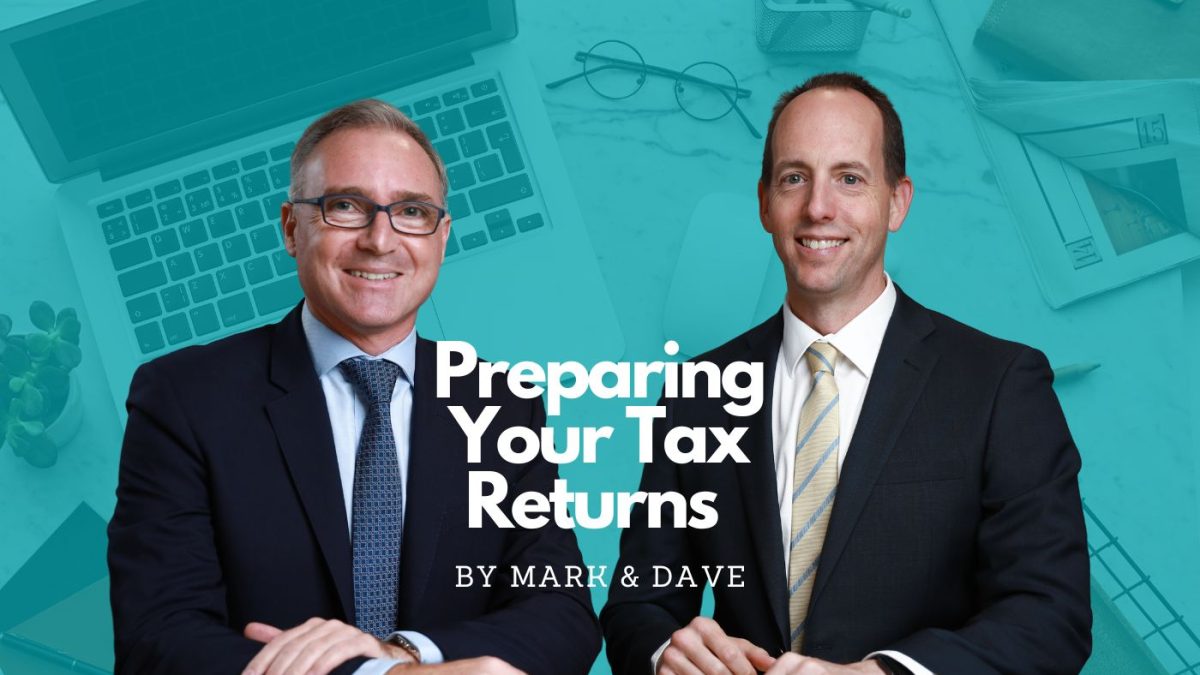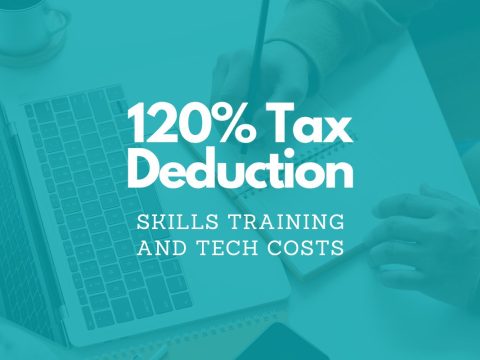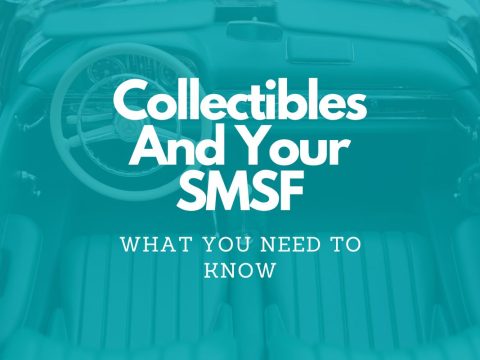Tips for having a smooth tax return experience
By David Downie and Mark Copsey
Happy New Financial Year!
Last month we focused on year-end tax planning tips. Now, with the financial year coming to a close, we focus on the year ahead to ensure you maximise deductions and – for clients – get your information to us quickly and efficiently.
For Individuals
Let’s start by having a look at any deductions you may be entitled to claim. Remember: these are expenses that your employer has not reimbursed you for. You don’t necessarily need to have paid them by 30 June, you just need to have incurred them. Some common examples include:
- Car expenses, including fuel costs and maintenance (note: you need to keep a logbook for a 12-week period to work out your entitlement)
- Travel costs related to your job, business or education
- Clothing and cleaning expenses if required for your work e.g. uniforms
- Education expenses where relevant to advancing your current career
- Union fees
- Home computer and phone expenses
- Tools and equipment
- Journals and trade magazines
- Subscriptions to professional associations
- Income Protection Insurance if paid personally
- Donations to registered charities
- Personal superannuation contributions over and above your employment super contributions (ask your fund for a Section 290-170 Notice of Intent to Claim)
To prepare your individual tax return, we’ll need to see details/evidence of the above, as well as any other information that could help us find further deductions for you, including:
- Last year’s accounting fees (if you have changed accountants)
- Working from home details: your hours per day and number of days (remember: if you have claimed some of the expenses noted above, you cannot claim the WFH amount)
- If you purchased a new vehicle in the year, you’ll need to provide those details (and a copy of the finance agreement if it was financed)
With the introduction of Single Touch Payroll, you no longer need to send in your payment summary or wage details.
Rental Properties
If you bought/sold an investment property, send us details of the purchase/sale and capital expenses.
- Settlement statement when bought or sold
- Stamp Duty costs
- Legal fees
- Repairs and renovations incurred before renting out the property
- Agents’ fees if sold
Once rented
- A summary of rent received and expenses paid (usually your agent will send an annual summary of these)
- Interest on loans used to purchase the property
- Expenses you have paid personally e.g. rates, land tax, strata fees, repairs
- Capital costs: copies of invoices so we can determine if they are immediately deductible or need to be depreciated or added to the cost of the property
- Depreciation schedule: we recommend using BMT Tax Depreciation for this; they will do all the hard work and the cost is usually far outweighed by the deductions you will be entitled to
Investments
Whilst the ATO has most interest and dividend payments you have received on record, it is always a good idea to provide your own summary as they can make mistakes.
- Interest received on bank accounts (usually the 30 June statement will provide an annual summary)
- Dividends received in the year: a summary from your brokerage account is helpful; if you have a larger portfolio, talk to us about using our Class Software (this will record dividends and capital gains at the push of a button at year-end)
- Trust distributions tax statements: frustratingly you may need to wait until as late as October for these to come through, however, they are important as they include details of tax free and tax deferred amounts
- Capital gains details: here we need to know both the purchase and sales details (dates, quantities and amounts); again talk to us about our Class Software for recording this information easily
- Interest paid on margin accounts
- Advisor fees for managing your portfolio
Foreign Source income
Australia taxes us on our worldwide income whether it’s received in Australia or not. For those with foreign source income, don’t panic as generally you get a credit for any tax paid overseas.
Common items missed are:
- Interest on overseas bank accounts
- Dividends received
- Capital gains details (see the investments section above)
- Rental income on overseas properties
- Overseas pensions (we see a lot of these from the UK)
Business Clients
Before sending in your information, there are a number of things you can prepare to make the job much more efficient and reduce the number of questions we have to ask you.
Some simple examples:
- Bank reconciliation: make sure the bank account reconciles and send in a copy of the 30 June bank statement so we can check this off
- Accounts receivable: run through your receivables listing and note any items that are ‘bad’ (write them off at 30 June or let us know which are bad and we can assist)
- Legal invoices: provide us with copies of legal invoices; some are immediately deductible, some over 5 years and some are capital (if we have the invoices we can easily work this out)
- Inventory: if you hold inventory, run through the listing and write-off or notify us of any obsolete stock which can be claimed as a deduction
- Assets: recently most businesses have been able to write-off the full cost of assets immediately and the question of deductibility hasn’t been so important, however, we should still record these on the business asset register (this could be valuable if, for example, an insurance claim was required or you are looking to sell the business in the future)
- Accounts payable: run through your payables listing and fix any potential errors, recording any expenses incurred at 30 June but not paid (these are deducible); if you are not sure, provide us with copies and we can assist
- GST: check if your GST reconciles for the whole year (a common issue is where adjustments are made in prior quarters after the BAS is lodged and they are forgotten in the next BAS)
- Loans: provide copies of bank loan statements
- Other documentation: provide copies of new leases, hire purchase and chattel mortgage details for new equipment purchases
Changes in circumstances
In order for us to assist you better, we need to know if your circumstances have changed. For example:
- Have you had a new child in the year?
- Have any children turned 18 in the year?
- Have you or are you planning to get married?
- Do you have a superannuation fund that is NOT self-managed?
- Have you inherited investments we need to be aware of?
- Are you planning on moving overseas?
- In your business has anything significant happened which may explain variances in income and expenses?
The more information you provide, the more efficiently we can process your accounts and returns while minimising back-and-forth and saving you time.
If you are ever in doubt of what to send in, please contact one of our senior accountants and they will be more than happy to assist you.
IMPORTANT NOTICE
This blog post contains general information only and has been prepared by Allworths without reference to your objectives, financial situation or needs. Allworths cannot guarantee the accuracy, completeness or timeliness of the information contained here. By making this information available to you, we are not providing professional advice or recommendations. Before acting on any of the information contained here, you should seek professional advice.




